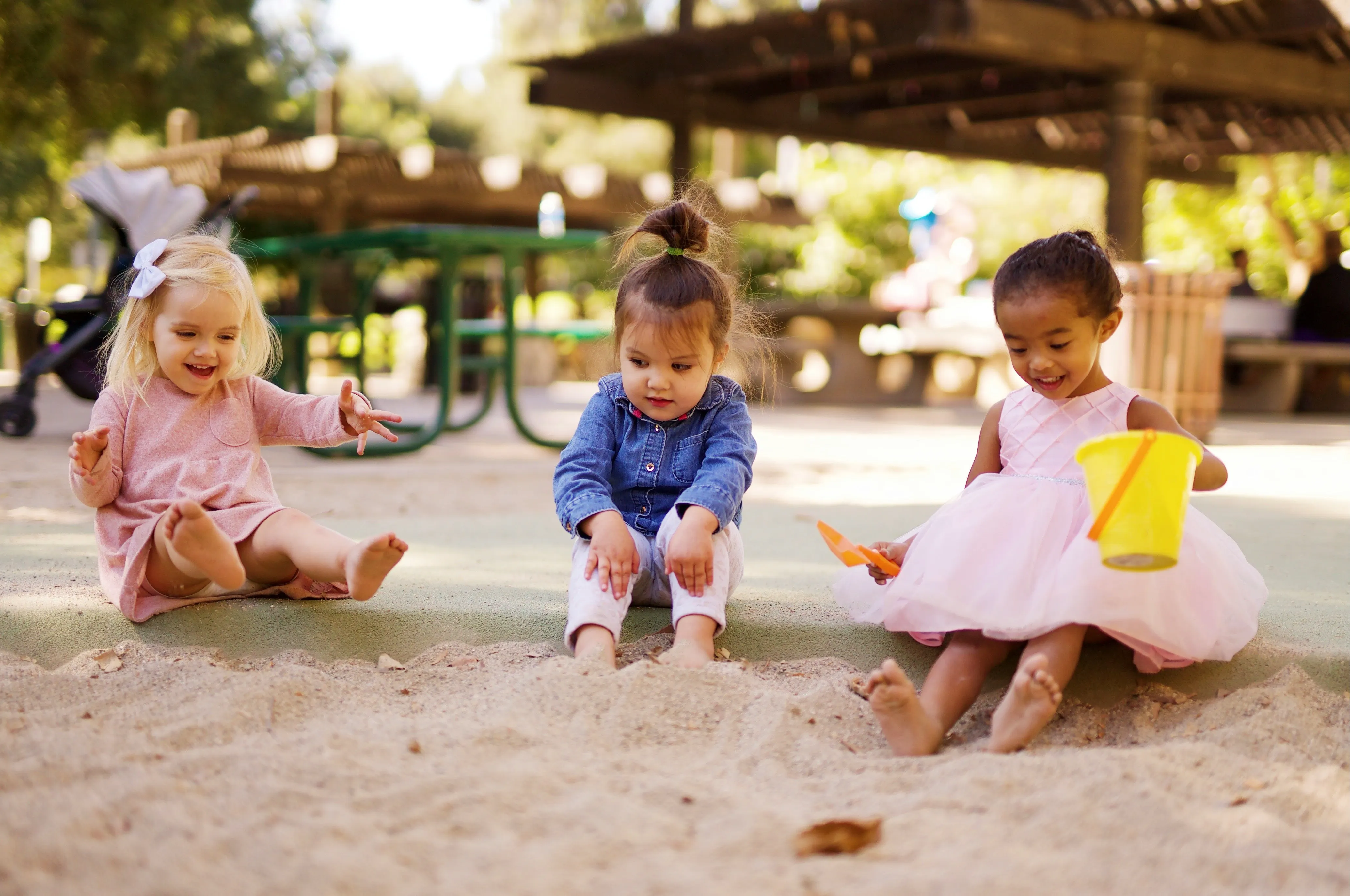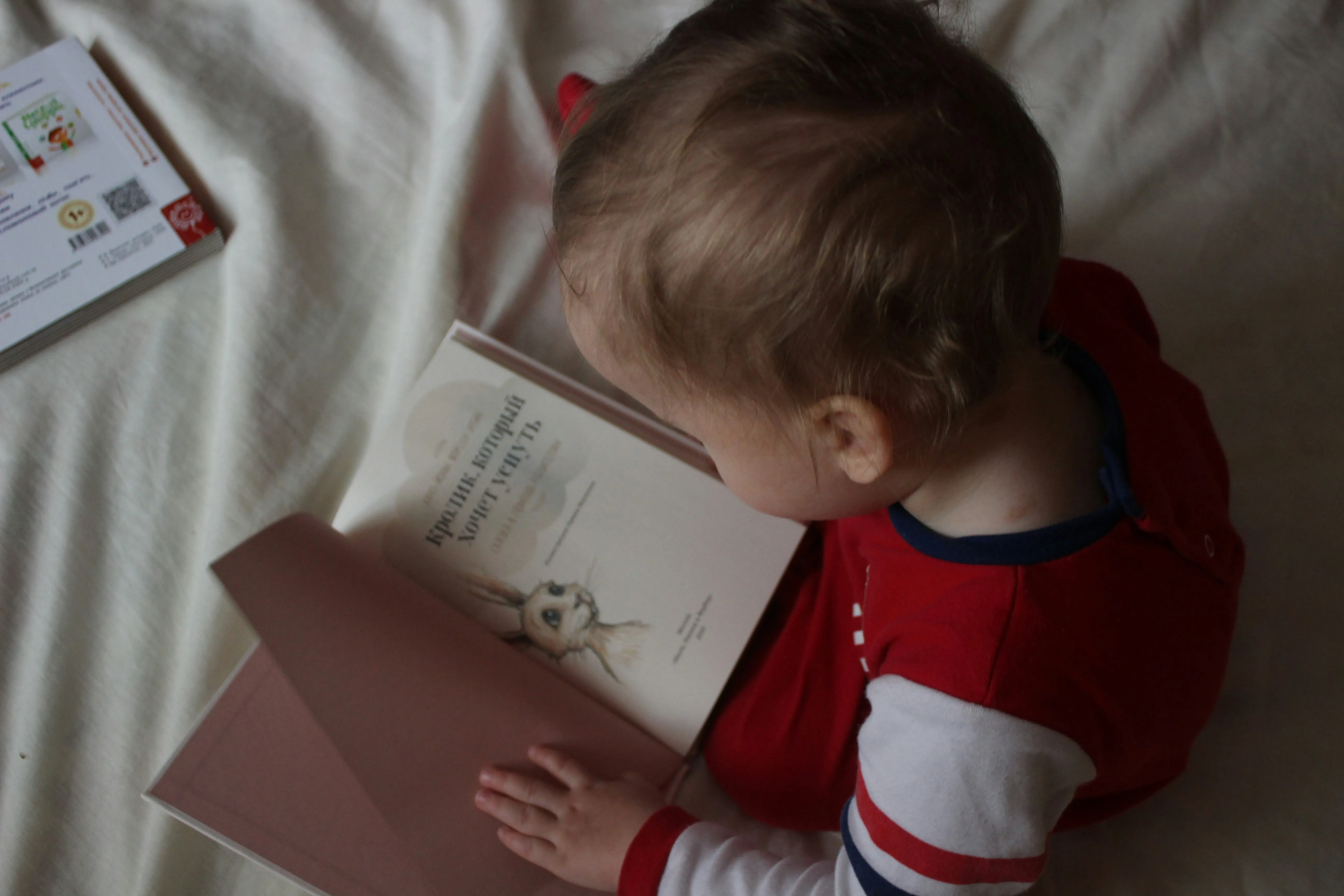Early Childhood Development: Strengthening Resilience
"Unlocking Potential: Empower Your Child's Resilience Today for a Brighter Tomorrow!"
Bonus: 10 effective ways to build resilience in children
Introduction
Early childhood development plays a crucial role in shaping the foundation for a child's lifelong health, well-being, and success. During the early years, children experience rapid physical, cognitive, emotional, and social development. These formative years establish the building blocks for future learning, relationships, and resilience. In this blog, we will explore the key elements of early childhood development and understand the importance of fostering resilience in young children. We will also discuss how caregivers, educators, and the broader community can support the healthy development of children, laying the groundwork for their bright future.

Understanding Early Childhood Development
Understanding Early Childhood Development
Early childhood development refers to the physical, cognitive, emotional, and social development of children from birth to around eight years of age. It is during this period that children experience significant growth and development, laying the foundation for their overall well-being. The early years are crucial because they shape the child's ability to learn, form relationships, and experience the world around them. Every child progresses at their own pace, but the early years provide critical opportunities for children to reach important developmental stepping stones and set the stage for healthy development.
 Developing Child
Developing Child
The Importance of Early Childhood Development
The Importance of Early Childhood Development
Early childhood development plays a fundamental role in the overall development of children. The experiences children have during their early years greatly influence their emotional, physical, cognitive, and social well-being throughout their lives.
Here are 4 key reasons why early childhood development is important:
- Shaping Life: Early childhood development sets the stage for healthy development, immune system function, and lifelong health. It influences children's ability to learn, think, and reason. A strong foundation during the early years enables children to reach their full potential and enhances their overall well-being.
- Developmental Stepping Stones: Early childhood development encompasses the achievement of developmental stepping stones, which are key markers of a child's development. These stepping stones can include physical skills, language development, cognitive abilities, and social and emotional growth. Monitoring these stepping stones helps identify areas of strength and areas that may require additional support.
- Brain Development: The early years are crucial for brain development. The brain undergoes rapid growth and development, with neural connections being formed at an astonishing pace. Providing children with enriching experiences, positive relationships, and responsive care helps foster healthy brain development, enhancing their learning potential.
- Well-being and Lifelong Health: Early childhood development has a lifelong impact on children's health and well-being. It plays a key role in the prevention of mental health issues, obesity, and chronic diseases. Investing in early childhood development ensures children have the opportunity to experience full, healthy lives.
By recognizing the importance of early childhood development, we can create supportive environments that promote children's well-being, resilience, and lifelong success.

Key Elements of Early Childhood Development
Key Elements of Early Childhood Development
Early childhood development consists of various key elements that contribute to the holistic development of children.
Let's explore 8 important areas that shape children's early years:
- Developmental Stepping Stones: Achieving developmental stepping stones is an essential part of early childhood development. These stepping stones encompass physical, cognitive, emotional, and social skills that children acquire at different ages and stages. They serve as indicators of children's progress and provide insights into their overall development.
- Brain Development: The early years are a crucial period for brain development. The brain experiences rapid growth, creating neural connections that form the foundation for learning, memory, and problem-solving skills. Stimulating experiences, positive relationships, and responsive care contribute to healthy brain development.
- Early Childhood Education: Early childhood education plays a pivotal role in children's development. It provides opportunities for children to explore, learn, and develop important skills. Quality early education programs focus on promoting cognitive, physical, emotional, and social development, setting children up for later academic success.
- Physical Activity: Engaging in physical activity is vital for children's development. It promotes healthy growth, motor skill development, and overall well-being. Active play helps children develop their gross motor skills, coordination, balance, and strength, contributing to their physical development.
- Language Development: Language development is a key element of early childhood development. It involves children learning to understand and use language to communicate their thoughts, feelings, and needs. Language development lays the foundation for cognitive development, literacy, and social interactions.
- Emotional Development: Emotional development focuses on children learning to identify, express, and regulate their emotions. It involves developing self-awareness, empathy, and emotional resilience. Emotional development supports children's mental health, relationships, and overall well-being.
- Social Development: Social development encompasses children's ability to interact, form relationships, and navigate social situations. It includes skills such as sharing, taking turns, and cooperating with others. Positive social development contributes to children's emotional well-being, communication skills, and overall resilience.
- Cognitive Skills: Cognitive development involves children's ability to think, reason, solve problems, and acquire knowledge. It includes skills such as memory, attention, language, and critical thinking. Fostering cognitive skills during early childhood enhances children's learning abilities, adaptability, and overall cognitive development.
Understanding the key elements of early childhood development provides a comprehensive view of the areas that shape children's overall development. By nurturing these key elements, we can support children in reaching their full potential and developing important lifelong skills.
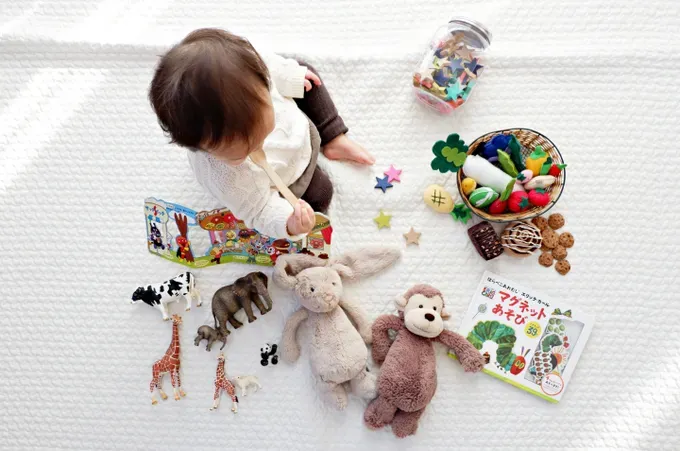
Building Resilience in Early Childhood
Building Resilience in Early Childhood
Resilience is an essential trait that enables children to navigate life's challenges, overcome adversity, and thrive in their environments. Building resilience in early childhood sets the foundation for children's mental health, emotional well-being, and overall ability to cope with life's ups and downs. By fostering resilience in young children, we empower them to develop healthy coping mechanisms, establish positive relationships, and build the skills they need to face future challenges with confidence.
What is Resilience?
What is Resilience?
Resilience can be defined as the ability to adapt, bounce back, and recover from adversity, stress, or trauma. It is the mental, emotional, and physical strength that allows individuals, including young children, to persevere and thrive in the face of challenges. Resilience is not about avoiding difficulties, but rather learning and growing from them.
Resilience plays a vital role in children's mental health and well-being, as well as their ability to form healthy relationships, make sound decisions, and navigate life's obstacles. It is a key factor in promoting positive mental health and preventing the development of mental health disorders later in life.
Additionally, research suggests that resilience can have a positive impact on the immune system, helping to protect children from certain illnesses and improving their overall health outcomes.
During the early years, children develop the foundation of their resilience through their relationships with caregivers, experiences of positive emotional support, and opportunities to problem-solve and overcome challenges. Building resilience in early childhood gives children the tools they need to face adversity, manage stress, and thrive in the face of life's uncertainties.

Why is Resilience Essential in Early Childhood?
Why is Resilience Essential in Early Childhood?
Resilience is particularly essential in the early years of life as it lays the groundwork for children's overall development and well-being.
Here are 5 key reasons why resilience is important during early childhood:
- Building a Sense of Purpose: Developing resilience in early childhood helps children develop a sense of purpose, self-esteem, and optimism. It enables them to set goals, persevere through challenges, and believe in their own abilities.
- Navigating Challenges: The early years are a time of rapid change and development, presenting young children with various challenges. Resilience equips children with the skills and mindset to navigate these challenges, learn from their experiences, and adapt to new situations.
- Emotional Regulation: Resilience supports children's ability to manage their emotions and regulate their reactions. It provides children with the skills needed to identify and express their emotions in healthy ways, fostering emotional intelligence and mental well-being.
- Social Skills: Developing resilience in early childhood contributes to children's ability to form positive relationships, empathize with others, and communicate effectively. Resilience helps children navigate social interactions, resolve conflicts, and collaborate with their peers.
- Problem-Solving and Decision-Making: Resilience enables children to develop problem-solving skills, make sound decisions, and think critically. It fosters their ability to analyze situations, consider different perspectives, and choose appropriate courses of action.
By promoting resilience in early childhood, we empower children to develop the skills, mindset, and emotional well-being necessary to tackle life's challenges, form positive relationships, and reach their full potential.

The Five Core Areas of Early Childhood Development
The Five Core Areas of Early Childhood Development
Early childhood development encompasses various core areas, each playing a significant role in a child's overall development. These areas shape children's ability to learn, think, communicate, and interact with their environment.
The following are the 5 core areas of early childhood development:
- Cognitive Development: Cognitive development refers to the growth of a child's ability to think, reason, remember, and problem-solve. It involves the development of language skills, learning abilities, and the ability to understand abstract concepts.
- Emotional Development: Emotional development focuses on children learning to recognize, express, and regulate their emotions. It involves developing self-awareness, empathy, and emotional resilience.
- Social Development: Social development encompasses children's ability to form relationships, interact with others, and navigate social situations. It includes skills such as sharing, taking turns, cooperating, and developing positive relationships.
- Speech and Language Development: Speech and language development involves children learning to understand and use language to communicate their thoughts, feelings, and needs. It includes both receptive language (understanding spoken language) and expressive language (using language to communicate).
- Gross and Fine Motor Skill Development: Motor skill development refers to the development of both gross motor skills (using larger muscle groups for activities like running, jumping, and balancing) and fine motor skills (using smaller muscles, like those in the hands and fingers, for activities such as picking up objects, drawing, or writing).
Understanding these five core areas of early childhood development provides a comprehensive view of the different aspects that shape children's overall development. Each core area plays a unique role in building the foundation for children's lifelong learning, health, and well-being.
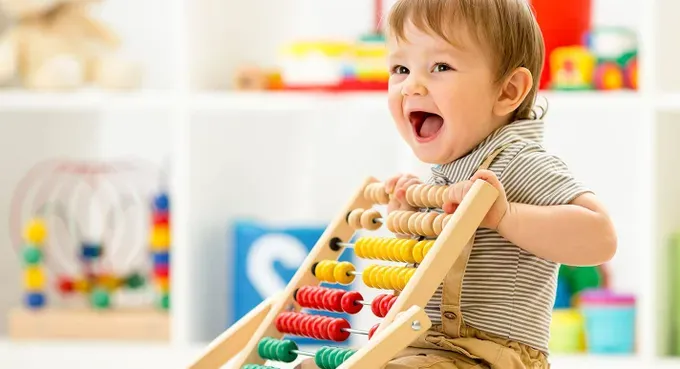
Cognitive Development and Resilience
Cognitive Development and Resilience
Cognitive development is a key element of early childhood development that influences children's ability to learn, problem-solve, and navigate their environment. Developing cognitive skills in early childhood not only lays the foundation for academic success but also contributes to children's resilience.
Here's why cognitive development is important for building resilience:
- Adaptability: Cognitive skills enable children to process information, learn from experiences, and adapt to changes. They develop the ability to think flexibly, problem-solve, and make decisions, which are essential skills for resilience.
- Learning from Challenges: Cognitive development provides children with the ability to learn from their experiences, including the challenges they encounter. It helps children identify patterns, find solutions, and implement strategies to overcome obstacles, contributing to their resilience.
- Brain Development: Cognitive development is closely intertwined with brain development. As children learn and practice cognitive skills, such as memory, attention, and critical thinking, their brain circuitry strengthens and becomes more efficient, enhancing their ability to adapt and bounce back from setbacks.
- Emotional Regulation: Developing cognitive skills, including emotional regulation, contributes to children's emotional resilience. Cognitive skills enable children to recognize, understand, and control their emotions, facilitating healthy emotional responses to challenging situations.
- Healthier Coping Mechanisms: Cognitive development promotes the development of healthy coping mechanisms, such as problem-solving, positive self-talk, and seeking support. These skills allow children to navigate stress, setbacks, and adversity, supporting their resilience.
By fostering cognitive development, we provide children with the cognitive skills necessary to face life's challenges, adapt to changes, and cultivate their resilience.
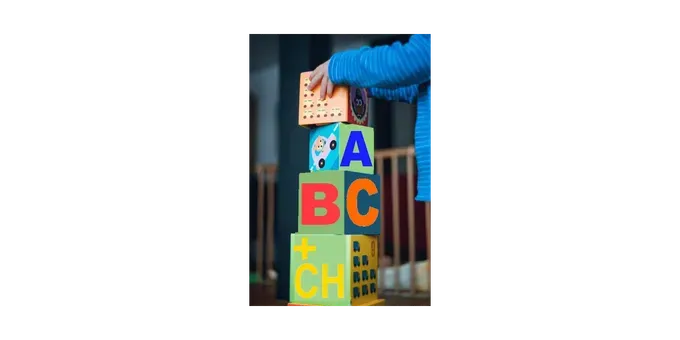
Emotional and Social Development and Resilience
Emotional and Social Development and Resilience
Emotional and social development are key areas of early childhood development that significantly influence children's ability to form relationships, understand their own emotions, and navigate social interactions. Developing emotional and social skills in early childhood contributes to children's resilience.
Here are emotional and social development important for building resilience:
- Emotional Regulation: Emotional development helps children recognize, understand, and regulate their emotions. By developing emotional intelligence, children can effectively manage their emotions, cope with stress, and bounce back from setbacks, fostering their resilience.
- Building Positive Relationships: Social development involves learning to form positive relationships, collaborate, and interact with others. Building strong, healthy relationships provides children with a support system, enhances their emotional well-being, and contributes to their resilience.
- Empathy and Perspective-Taking: Emotional and social development fosters the development of empathy, the ability to understand and share the feelings of others. Empathy helps children form strong relationships, navigate conflicts, and respond compassionately, promoting their resilience.
- Communication Skills: Emotional and social development includes developing effective communication skills. Clear communication allows children to express their thoughts, feelings, and needs, aiding their ability to form positive relationships, seek support, and cope with challenges.
- Social Problem-Solving: Developing social skills supports children in resolving conflicts, navigating social situations, and collaborating with others. The ability to problem-solve and make decisions in social contexts contributes to their resilience.
By nurturing emotional and social development, we equip children with the skills, mindset, and emotional well-being necessary to form positive relationships, manage their emotions, and build resilience.
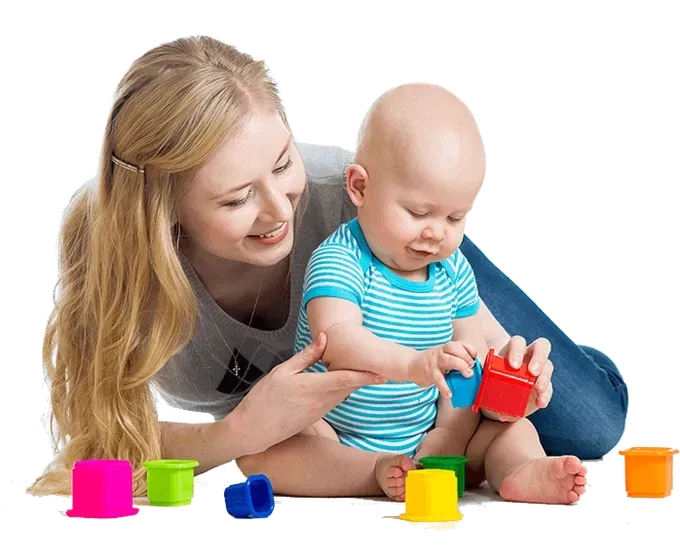

Speech and Language Development and Resilience
Speech and Language Development and Resilience
Speech and language development are critical areas of early childhood development that influence children's ability to communicate, learn, and understand the world around them. Developing strong language skills in early childhood contributes to children's resilience.
Here are 5 methods of speech and language development vital for building resilience:
- Expressing Emotions and Needs: Language development provides children with the ability to express their emotions, needs, and thoughts effectively. By developing strong communication skills, children can articulate their experiences, seek support when needed, and build resilience.
- Understanding the World: Language development fosters children's ability to understand and interpret the world around them. Strong language skills facilitate comprehension, enhancing children's resilience by enabling them to make sense of their experiences and learning from them.
- Social Interaction: Language skills are key for social interaction, allowing children to engage in conversations, form relationships, and navigate social situations. Effective communication supports children in developing positive relationships, seeking support, and developing their resilience.
- Building Cognitive Skills: Language development is closely linked to cognitive development. Language skills support the development of cognitive abilities, such as memory, problem-solving, and critical thinking, which are important components of resilience.
- Confidence and Self-Esteem: Strong language skills contribute to children's confidence in expressing themselves, fostering positive self-esteem. Language development enables children to communicate their ideas, thoughts, and emotions, enhancing their resilience and ability to navigate challenging situations.
By promoting speech and language development, we empower children to communicate effectively, understand their experiences, and build the foundation for their resilience.

Gross and Fine Motor Skill Development and Resilience
Gross and Fine Motor Skill Development and Resilience
Motor skills development, encompassing both gross motor skills and fine motor skills, is an important aspect of early childhood development. It contributes to children's physical development, coordination, and ability to navigate their environment. Developing motor skills supports children's resilience.
Here are 5 vital skills important for building resilience:
- Physical Development: Gross motor skills, involving the use of larger muscle groups, support children's physical development by developing their strength, endurance, and coordination. Physical development promotes children's overall well-being, which contributes to their resilience.
- Persistence and Effort: Developing motor skills requires persistence, effort, and practice. Through their motor skills development, children learn the value of perseverance, the ability to try again after failure, and the importance of effort, all of which are important qualities of resilience.
- Building Confidence: As children develop their motor skills, they gain confidence in their ability to navigate their environment, engage in physical activities, and overcome physical challenges. Building confidence through motor skills development enhances children's overall resilience.
- Self-Regulation: Motor skills development supports the development of self-regulation, the ability to control movements, and the coordination of different muscle groups. Self-regulation is essential for children to engage in physical activities safely, manage their energy levels, and develop resilience.
- Adaptability: Developing motor skills involves learning to adapt, adjust, and coordinate different movements. This adaptability transfers to other areas of life, promoting children's ability to navigate changes, learn from experiences, and develop their resilience.
By encouraging motor skills development, children become physically capable, learn the importance of effort, gain confidence, develop self-regulation, and cultivate the skills necessary to adapt and bounce back, fostering their overall resilience.

Enhancing Resilience through Early Childhood Development Essentials
Enhancing Resilience through Early Childhood Development Essentials
Providing children with a strong foundation of early childhood development essentials supports the development of their resilience. Focusing on key areas, caregivers, educators, and the broader community can contribute to children's ability to navigate challenges, build healthy relationships, and develop the skills needed to thrive.
Here are two essential aspects of early childhood development that enhance children's resilience:
Role of Positive Relationships
Role of Positive Relationships
Positive relationships, both within the family and with caregivers, are crucial for supporting children's early childhood development and fostering their resilience. Here are some key ways positive relationships contribute to the development of resilience in young children:
- Emotional Support: Positive relationships provide emotional support to children, which contributes to their emotional well-being and the development of healthy coping mechanisms.
- Responsive Caregiving: Responsiveness from caregivers, such as promptly attending to the child's needs and providing emotional support, helps children feel secure, valued, and understood.
- Nurturing Environment: Positive relationships create a nurturing environment for children, promoting their overall development, self-esteem, and positive mental health.
- Role Modeling: When children observe positive relationships, they learn positive behaviours, empathy, communication skills, conflict resolution, and other important life skills.
- Trust and Security: Positive relationships between children and their caregivers establish trust and security, allowing children to explore their environment, take healthy risks, and bounce back from challenges.
- Consistency and Predictability: Positive relationships provide children with a sense of consistency and predictability, which enhances their emotional stability and resilience.
By cultivating positive relationships, parents, caregivers, early childhood educators, and the broader community play a vital role in supporting children's early childhood development and fostering their resilience.
The Importance of Play
The Importance of Play
Play is a fundamental aspect of early childhood development that promotes children's overall development, learning, and resilience. Engaging in play-based activities supports children's cognitive, physical, emotional, and social development. Here's why play is important for building resilience:
- Cognitive Development: Play provides children with opportunities to explore, experiment, and learn through hands-on experiences, which fosters their cognitive development. It supports the development of problem-solving skills, critical thinking, and creativity, all of which contribute to resilience.
- Emotional Expression: Play allows children to express their emotions, experiences, and thoughts freely. Through play, children can act out their feelings, explore different scenarios, and develop emotional resilience.
- Social Skills: Play offers children the chance to interact with peers, practice communication, and develop their social skills. Building positive relationships, sharing, taking turns, and resolving conflicts during play contributes to children's social-emotional development and resilience.
- Imagination and Creativity: Play encourages children to use their imaginations, solve problems, and think creatively, fostering their ability to adapt, think outside the box, and persevere when faced with challenges.
- Physical Development and Well-being: Play involves physical activity, which aids in the development of gross motor skills, coordination, strength, and overall well-being. Active play enhances children's physical development, supporting their overall resilience.
By recognizing the importance of play, parents, educators, and the community can create environments that promote children's learning, development, and resilience.

Early Childhood Development Stepping Stones and Resilience
Early Childhood Development Stepping Stones and Resilience
Reaching developmental stepping stones is an important part of early childhood development. These stepping stones mark key stages of children's development and provide invaluable insights into their growth. Acknowledging developmental stepping stones and supporting children's progress enhances their resilience.
Recognizing Developmental Stepping Stones
Recognizing Developmental Stepping Stones
Developmental stepping stones serve as important markers of children's progress during their early years. Acknowledging and celebrating children's achievements reinforces positive experiences, self-esteem, and development.
Here's another generic intro to why recognizing developmental stepping stones is important for building resilience:
- Understanding Progress: Recognizing developmental stepping stones helps parents, caregivers, and educators understand children's developmental progress, providing a general idea of the changes occurring at different ages and stages of their development.
- Individualized Support: Identifying stepping stones ensures that children receive age-appropriate learning experiences, support, and interventions, if necessary, to aid their development and promote their resilience.
- Encouraging Positive Experiences: Celebrating stepping stones, both big and small, reinforces children's positive experiences, fosters their self-esteem, and creates a foundation of emotional well-being, which contributes to their overall resilience.
- Tailoring Developmental Activities: Recognizing developmental stepping stones aids in tailoring developmental activities to children's specific developmental needs, promoting their engagement, learning, and resilience.
- Observing Development: Monitoring developmental stepping stones allows parents, caregivers, and educators to observe children's development progress, identify areas of strength, and identify any potential developmental delays early on, supporting early intervention and promoting children's resilience.
By recognizing and valuing developmental stepping stones, we provide children with the support, experiences, and interventions they need to achieve their full potential, building their resilience along the way.

The Journey
How Resilience Plays a Role in Developmental Stepping Stones
How Resilience Plays a Role in Developmental Stepping Stones
Building resilience plays a crucial role in children's ability to navigate the stages of their development. Resilience empowers children to persevere, adapt, and overcome challenges, supporting their overall developmental progress.
Here are some ways resilience helps children:
- Overcoming setbacks: Resilience helps children bounce back from setbacks, such as unsuccessful attempts at learning new skills or challenges they may encounter during development. Resilient children are more likely to try again, persist, and ultimately achieve their developmental stepping stones.
- Adaptability: Resilience fosters adaptability, the ability to adjust, and cope with changes. As children face different stages of their development, resilience equips them with the skills to navigate new experiences, learn from challenges, and adapt their behaviours, supporting their developmental progress.
- Managing Frustration: Developmental stepping stones can sometimes be frustrating for children, especially when they are learning new skills or facing more significant developmental changes. Resilience helps children manage frustration, stay motivated, and approach challenges with a positive mindset, contributing to their ability to reach developmental stepping stones.
- Positive Mindset: Resilient children develop a positive outlook, which enhances their motivation, self-belief, and overall resilience. A positive mindset supports children in approaching developmental stepping stones with confidence, optimism, and curiosity, facilitating their achievement.
- Building Confidence: Resilience helps children build the confidence needed to take risks, try new things, and tackle developmental stepping stones. Resilient children develop a sense of mastery, knowing that even if they face obstacles, they can overcome them, supporting their developmental progress.
By fostering resilience, we create the foundation for children's ability to achieve their developmental stepping stones, overcome challenges, and reach their full potential.

How can Caregivers Foster Resilience in Children?
Fostering resilience in children is vital, and caregivers play a crucial role. By cultivating responsive relationships and creating a supportive learning environment, caregivers can help children develop resilience. Encouraging positive communication, emotional expression, and providing a sense of security and trust are also essential in fostering resilience.

Frequently Asked Questions Answered
What Is Early Childhood Development?
Early childhood development encompasses the physical, cognitive, social, and emotional growth of children from birth to age eight. These formative years have a lasting impact on a child's future success. Establishing secure attachments and positive relationships with caregivers is vital for healthy development. Programs supporting early childhood development can provide resources for parents and caregivers, fostering positive outcomes for children.
Why Is Early Childhood Development Important?
Early childhood development is vital because it forms the basis for a child's physical, social, and emotional well-being. The first few years of life are crucial for brain development and learning. Investing in early childhood development yields long-term benefits for both individuals and society, shaping a child's future health, education, and overall success in life.
What Is Important for Child Development?
Child development is crucial for a child's growth and future success. Creating a safe and nurturing environment, encouraging play and socialization, and providing consistent positive reinforcement and support are important for cognitive, emotional, and physical development. This promotes resilience and self-esteem in children.
How can parents support their child's social and emotional development during the early years?
Supporting your child's social and emotional development in the early years is crucial. Encourage positive behaviours like sharing and taking turns, provide opportunities for play and exploration, validate their emotions, and build a strong relationship. These steps create a secure foundation for your child to thrive.
What are some effective ways to promote cognitive development in young children?
Encouraging play-based learning is an effective way to improve cognitive abilities in young children. Reading to them can also promote language and cognitive development. Engage children in interactive activities that challenge their thinking and problem-solving skills. Provide a stimulating environment with age-appropriate toys and games.
Promoting cognitive development in young children involves engaging them in activities that stimulate their thinking, learning, exploring, and problem-solving skills.
Here are 12 effective ways to foster cognitive growth in early childhood:
1. Interactive Play: Encourage play that involves buttons, levers, and moving parts, as well as make-believe scenarios with dolls, animals, and people to stimulate imagination and problem-solving[6].
2. Outdoor Activities: Outdoor play and short excursions can help children learn about their environment and develop spatial awareness and scientific reasoning[2].
3. Creative Activities: Arts and crafts, as well as other creative endeavours, can enhance imagination and creativity, which are important aspects of cognitive development[8].
4. Puzzles and Sorting Games: These activities help with problem-solving skills and the ability to categorize and sort objects, which are key cognitive skills[2][5].
5. Singing and Music: Singing songs and encouraging children to sing along can promote memory and word identification[4].
6. Asking Questions: Engage children with open-ended questions to encourage them to think critically and express their thoughts[1].
7. Reading and Storytelling: Reading books to children and asking them to recall parts of the story or predict what will happen next can enhance language skills and memory[9].
8. Memory Games: Games like memory matching or "Go Fish" can help develop short-term memory and recognition skills[5].
9. Exploration and Self-Discovery: Allowing children to explore the world on their own helps them learn through their senses and improves cognitive skills such as touch, smell, taste, sight, and sound recognition[1].
10. Routine and Procedures: Establishing simple routines can help children understand sequences and develop logical thinking[8].
11. Educational Toys: Toys that require manipulation, such as building blocks or interactive electronic devices, can improve hand-eye coordination and problem-solving abilities[6].
12. Physical Activities: Engaging in physical activities like riding a tricycle or playing ball games can also contribute to cognitive development by enhancing motor skills and coordination[2].
It's important to remember that each child develops at their own pace, and these activities should be tailored to the child's individual interests and developmental stage. Additionally, providing a supportive and nurturing environment is crucial for cognitive development, as it allows children to feel secure in exploring and learning about the world around them[3][7].
Citations:
[1] https://thepillarsclc.com/how-to-promote-cognitive-development-in-early-childhood/
[2] https://illumine.app/blog/activities-for-cognitive-development-in-preschool/
[3] https://helpmegrowmn.org/HMG/DevelopMilestone/CognitiveMilestones/index.html
[4] https://www.friendshipcircle.org/blog/2014/06/09/10-ways-to-promote-your-childs-cognitive-development
[5] https://www.himama.com/blog/preschool-activities-for-cognitive-development/
[6] https://www.virtuallabschool.org/preschool/cognitive-development/lesson-2
[7] https://positivepsychology.com/cognitive-development-activities/
[8] https://www.eccm.org/blog/cognitive-development-activities-for-toddlers
[9] https://www.verywellmind.com/cognitive-developmental-milestones-2795109
[10] https://helpmegrowmn.org/HMG/HelpfulRes/Articles/WaysEncourageCognitiveDev/index.html
[11] https://kidsactivitiesblog.com/213549/cognitive-activities-for-preschoolers/
[12] https://aboutplaysc.com/cognitive-development-milestones-for-children-0-3-years/
[13] https://raisingchildren.net.au/preschoolers/play-learning/play-preschooler-development/thinking-play-preschoolers
[14] https://discoverybuildingsets.com/cognitive-activities/
[15] https://rainforestlearningcentre.ca/what-are-cognitive-developmental-milestones-in-early-childhood/
[16] https://www.mffy.com/blog/twelve-fun-ways-to-promote-your-childs-cognitive-development-by-age-group
[17] https://www.wonderbaby.org/articles/cognitive-activities-for-preschoolers
[18] https://www.healthychildren.org/English/ages-stages/preschool/Pages/Developmental-Milestones-3-to-4-Year-Olds.aspx
[19] https://otsimo.com/en/cognitive-development-childhood/
[20] https://www.bcscschools.org/cms/lib/IN50000530/Centricity/Domain/752/Cognitive%20Development%20Milestones.pdf
[21] https://www.brainbalancecenters.com/blog/ideas-for-a-family-fresh-start-improve-cognitive-skills
[22] https://www.cdc.gov/ncbddd/actearly/milestones/milestones-5yr.html
How does playtime contribute to a child's overall development?
Playtime plays a crucial role in a child's overall development. It promotes physical, cognitive, and social-emotional growth. Engaging in play helps children develop problem-solving skills, creativity, and imagination. Additionally, it fosters important social skills like communication, cooperation, and empathy. Playtime is an essential component of early childhood development.
What are some effective ways to strengthen resilience in young children?
Strengthening resilience in young children involves a combination of strategies that help them adapt well to adversity, trauma, threats, or significant sources of stress.
Here are 10 effective ways to build resilience in children:
1. Make Connections: Encourage children to establish and maintain good relationships with family members, friends, and others. These connections provide a sense of security and a strong support system[1].
2. Help Your Child by Having Them Help Others: Encourage children to help others, as it can boost their sense of self-worth and foster empathy[1].
3. Maintain a Daily Routine: Regular daily routines provide a sense of security and predictability for children[1].
4. Teach Them How to Reframe: The ability to reframe challenges in ways that feel less threatening is linked to resilience. This skill helps children focus on what they have, rather than what they've lost[3].
5. Encourage Healthy Thinking Patterns: Help children accept uncertainty and change as inherent parts of life. This allows them to focus on what they can control and move forward[7].
6. Exercise: Regular physical activity strengthens the brain and makes it more resilient to stress and adversity[5].
7. Create an Accomplishment Jar: Encourage children to reflect on their successes. This can boost their confidence and improve their resilience when faced with future challenges[6].
8. Use Fun Games and Activities: Games and activities can provide hands-on exercises that are easier for kids to engage in and absorb, thereby building resilience[2].
9. Model Resiliency: Show resilience in your own actions. Use coping and calming strategies, label your emotions, and talk through your problem-solving process[5].
10. Read Books About Resilience: Books can provide examples of resilience and perseverance, helping children form connections to their own life[10].
Remember, resilience is not about avoiding difficulty or distress, but about learning to cope effectively with these experiences. It's a skill that can be developed over time with the right experiences and support[3].
Citations:
[1] https://www.apa.org/topics/resilience/guide-parents-teachers
[2] https://www.tomsofmaine.com/good-matters/healthy-feeling/building-resilience-in-children-using-fun-games
[3] https://www.heysigmund.com/building-resilience-children/
[4] https://www.ncbi.nlm.nih.gov/pmc/articles/PMC6069421/
[5] https://www.psycom.net/build-resilience-children
[6] https://slumberkins.com/blogs/slumberkins-blog/effective-resilience-activities-that-welcome-empathy
[7] https://www.health.harvard.edu/blog/resilience-5-ways-to-help-children-and-teens-learn-it-202202242694
[8] https://www.naeyc.org/sites/default/files/globally-shared/downloads/PDFs/resources/pubs/spotlight-se-development-rev-collet.pdf
[9] https://www.camh.ca/en/health-info/guides-and-publications/growing-up-resilient
[10] https://biglifejournal.com/blogs/blog/activities-grit-resilience-children
[11] https://biglifejournal.com/blogs/blog/how-to-raise-resilient-kids-who-never-give-up
[12] https://www.mdpi.com/2227-9067/10/4/716
[13] https://raisingchildren.net.au/school-age/behaviour/understanding-behaviour/resilience-how-to-build-it-in-children-3-8-years
[14] https://positivepsychology.com/resilience-activities-worksheets/
[15] https://www.theguardian.com/lifeandstyle/2019/jan/05/six-ways-to-raise-a-resilient-child
[16] https://www.theyarethefuture.co.uk/building-resilience-children/
[17] https://developingchild.harvard.edu/science/key-concepts/resilience/
[18] https://www.teachingexpertise.com/classroom-ideas/emotional-resilience-activities/
[19] https://www.edc.org/blog/three-ways-build-childrens-resilience
[20] https://www.weareteachers.com/emotional-resilience-activities/
[21] https://psychcentral.com/health/tips-for-raising-resilient-kids
[22] https://www.ndhealth.gov/injury/publications/resiliency%20building%20activities.pdf
Conclusion
In conclusion, early childhood development plays a crucial role in building resilience in children. It is during these formative years that children learn and develop essential skills across various domains, including cognitive, emotional, social, speech and language, and gross and fine motor skills.
By fostering positive relationships, providing opportunities for play, recognizing developmental stepping stones, and addressing any delays through early intervention strategies, caregivers can help nurture resilience in children.
If you have any questions or want to share your experiences with early childhood development and resilience, please feel free to comment below. We would love to hear from you and continue the conversation. Remember, investing in early childhood development sets the foundation for a resilient and successful future for our children.
























